What India and the UK love about each other
- Published
India and the UK have a long - and troubled - relationship, but it is also one that has evolved considerably over the years.
It is no longer a connection between the coloniser and colonised, and there is a lot of chatter on how relevant the UK has become to India, but signs of the deep connection between the two countries are undeniable and ever present.
The BBC presents five things that Indians think fondly of about the UK, and vice versa.

What India loves about the UK: By Ayeshea Perera, BBC News, Delhi
The English Premier League
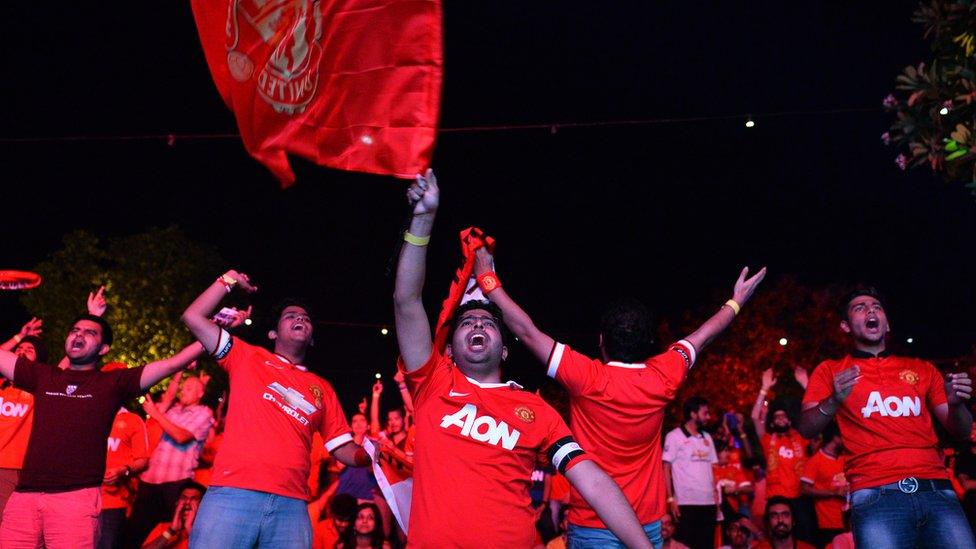
On game nights, expect fist pumping celebrations and anguished moans on the streets of New Delhi
The chants, the roars, the team jerseys and fanatical fan frenzy.
The Indian fan clubs for Manchester United, Liverpool, Arsenal and Chelsea are all officially recognised, external by their parent clubs in the UK, and they organise free screenings of matches for members with discounted food and drinks.
Walk into most bars in Mumbai or Delhi on any weekend evening, and you will be hard pressed to believe that you're actually in India. From fist pumping celebrations to anguished moans to taking celebrations out on to the streets, it's all there.

Whisky
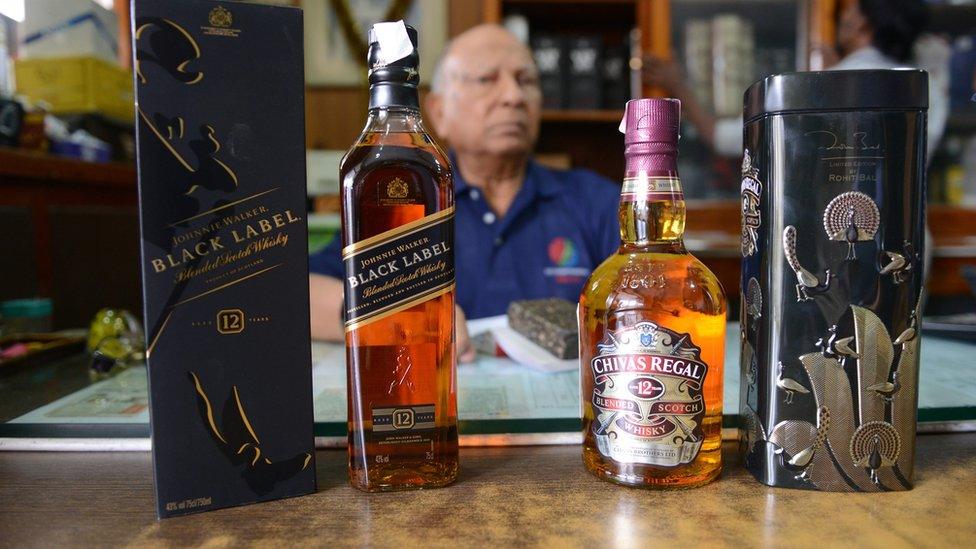
India consumed a whopping 1.5 billion litres of whisky in 2014
To say that Indians love their whisky would be a gross understatement. The country consumed a whopping 1.5 billion litres of the drink in 2014, which allowed it to retain its spot as the world's largest consumer of whisky, according to a research note, external from Bank of America Merrill Lynch.
This love for whisky is estimated to be worth more than $10bn (£6.5bn) and has attracted some pretty serious players like Diageo, which in 2012, external bought a 53% stake in India's United Breweries. And who do we have to thank for that? Why the UK of course!

PG Wodehouse, Enid Blyton and Agatha Christie
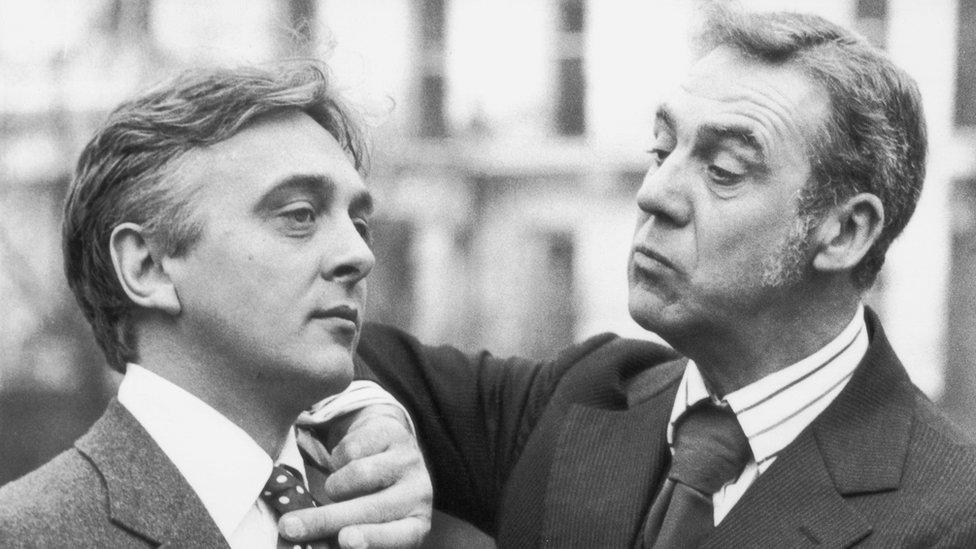
The complete collection of the Jeeves books is a fairly common item in Indian libraries
Jeeves and Wooster, Hercule Poirot, the Famous Five, Miss Marple, Silky and Moonface have been, and continue to be, some of the best loved literary characters in Indian popular imagination.
PG Wodehouse in particular has a cult following in India, and the complete collection of the Jeeves books is a fairly common item in the average Indian library.
Similarly, many Indians grow up on a diet of Enid Blyton, who is also squarely responsible for fostering strong cravings for typical British foods in Indian children, many of whom have vivid memories of disappointment when their parents told them that they could not have scones and clotted cream for tea because no one knew how to make them.
Latest addition: JK Rowling. We may be Muggles but many of us are Harry Potter fanatics. And bonus points for the Patil twins!

Benedict Cumberbatch...

Mr Cumberbatch has as wide a female fan following in India as he does anywhere else in the world
...deserves his own post. Sherlock Holmes is also a much loved literary character in India, and no one has quite embodied the role like Benedict Cumberbatch in the BBC series.
The television series is so popular here that it is aired concurrently with the US and UK.
Sherlock reruns and Sherlock marathons are also frequently aired on Indian television channels.
Cumberbatch also has as wide a female fan following in India as he does anywhere else in the world, and many Indian hearts were broken when it was announced that he had married Sophie Hunter.

Music matters
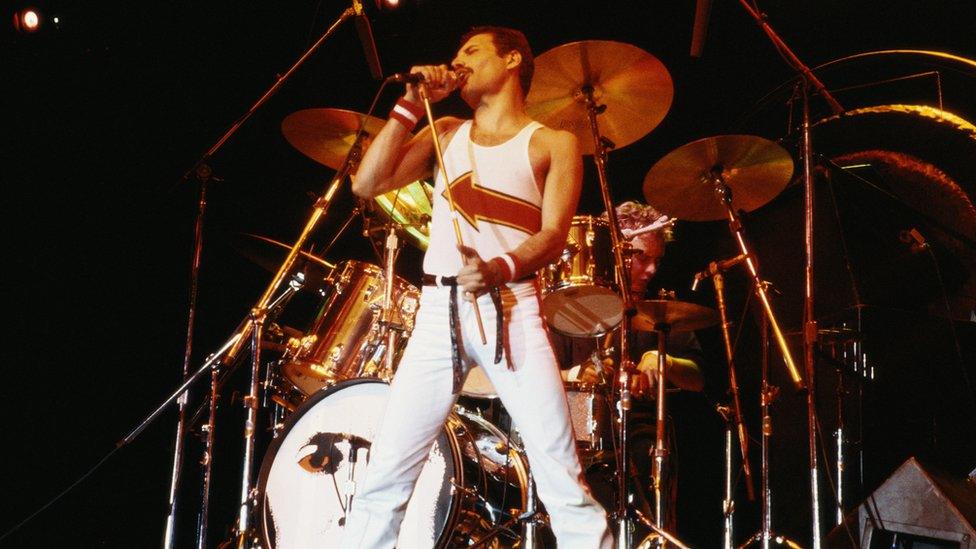
We love Brit pop so much we gave the UK Freddie Mercury
We love British music. We love it so much we gave the UK.... Freddie Mercury!
But joking aside, the Beatles, Queen, Oasis, The Who, The Rolling Stones and lately Ed Sheeran and Adele have dedicated and passionate fan followings in India.
We know all the lyrics to Bohemian Rhapsody, Wonderwall remains a popular sing-along song, and Adele's croonings have made us all question the futility of love.
And no hipster bar is complete without an exhaustive Beatles playlist. In fact the Beatles is still very much a part of essential Indian college listening. Blame George Harrison and the Hare Krishna movement!

What Britain loves about India: By Mario Cacciottolo, BBC News, London
Curry
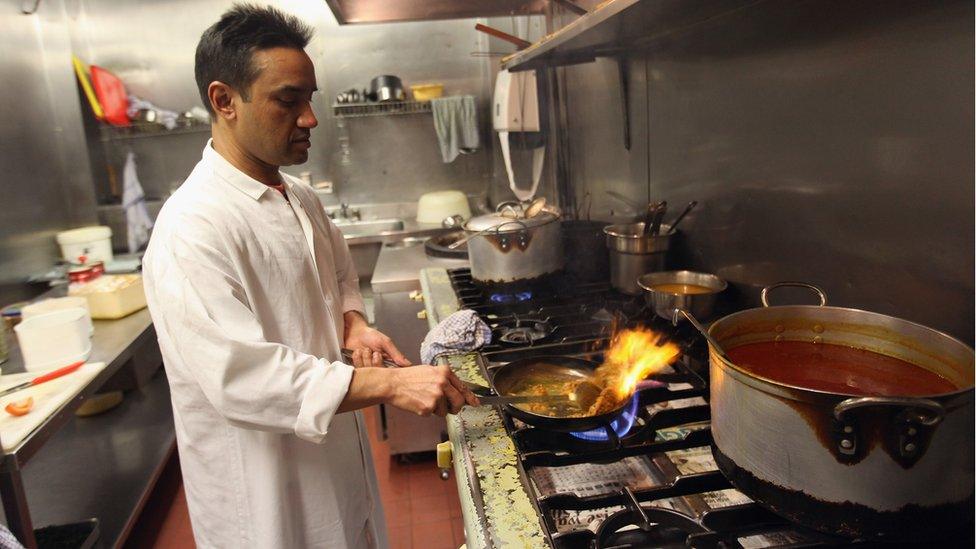
Curry chefs in the UK cook recipes palatable to the stomachs of Brits
Any Briton who's ever had a night out will have ended up in a curry house at some point.
It's more than a meal to the Brits - it's a social tool, a mechanism for old friends, new colleagues and Sunday league footballers to bond over. When the silver bowls of silky sauces arrive, accompanied by duvet-like naan bread, it's an antidote to the UK's national dish of bland (if comforting) fish and chips.
The nation's lust for tikka masala, korma and jalfrezi is said to be worth £4bn to the British economy, external, and curry frequently appears on the list of the UK's favourite foods, even topping that list at various points in recent years.
So what if the dishes served in Britain are but an imitation of the actual ones, external cooked in Indian homes? And who cares if some of the restaurants are actually run by fellows from neighbouring Bangladesh? A takeaway Indian curry on a Friday night remains the perfect reward for a long, hard British week.

The Taj Mahal
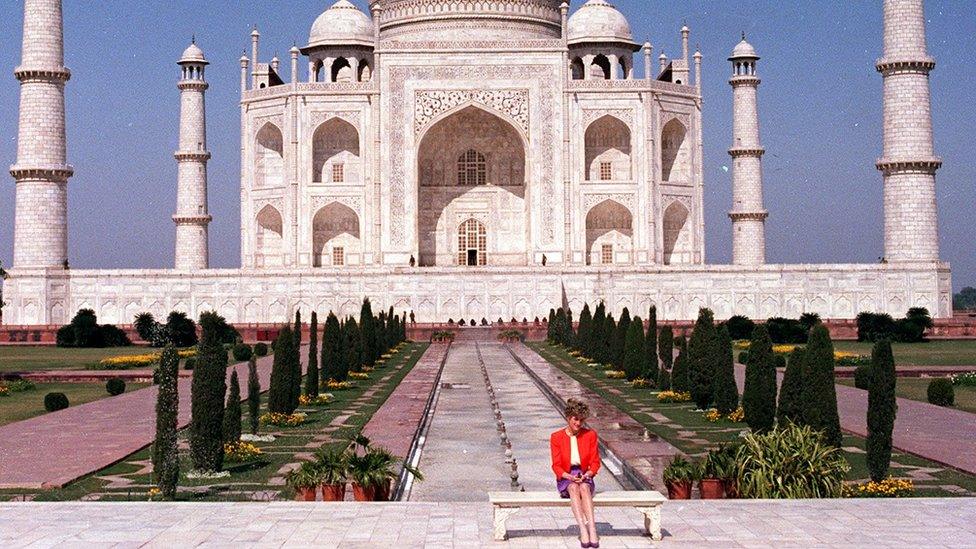
Princess Diana's time at the Taj Mahal has never been forgotten by the British public
It is a truth universally acknowledged that any Brit heading for India will visit the Taj Mahal. None of them would dream of skipping the world's most famous monument to love.
And for the British, there is a particular poignancy, as it was here that Princess Diana was photographed alone in 1992, the brightness of the white stone shining a harsh light on her solitude. By the end of that year, she and Prince Charles had separated, and the image of the princess alone on that bench still tugs at the nation's heart strings to this day.
On a happier note, the Taj Mahal has also given its name to many of the nation's beloved curry houses.

Tea
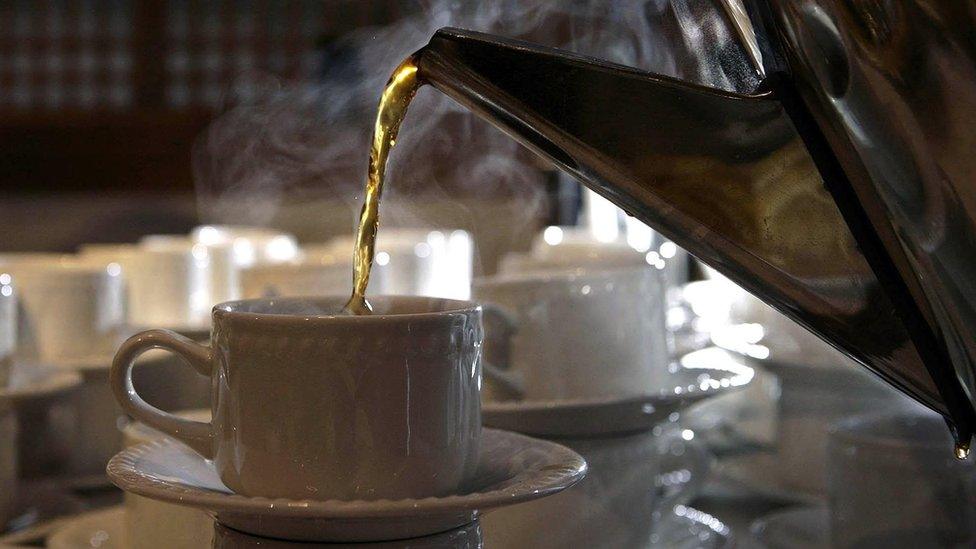
Any news, good or bad, is usually best served with a nice cup of tea
When there's a problem to be solved in the UK, the first order of business is to pop the kettle on.
Tea is the glue that holds British society together, fixing relationships, mending friendships, a pool into which problems can be poured. The blood of the nation is dark or milky, depending on your taste.
Tell any Brit you'd like a "builder's tea" and they'll know exactly what you mean (so strong you might not get the end of your spoon back).
Commercial production of tea in India began after the British East India Company took control of large areas of the country, with the drink eventually becoming popular in Britain in the 1920s. To us, Assam and Darjeeling aren't just names, they're old friends.
Our prime minister even fell in love with the Downing Street tea lady, once. Well, all right, that was Hugh Grant in Love Actually, but everyone believed it could happen. Whose eye wouldn't be caught by someone with an endless supply of tea and chocolate biscuits?

Period pieces
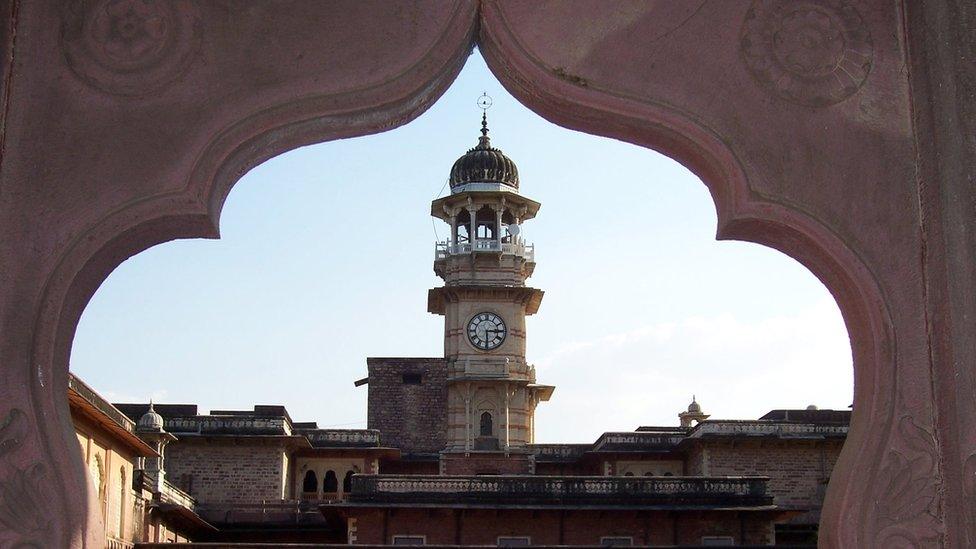
The exotic story of India is one that still fascinates the British public
The British just can't get enough of harking back to the days when India was part of its empire.
This isn't a time that everyone looks back on fondly of course, but that hasn't stopped dramatic tales from that era becoming and remaining popular with the British to this day, for whom India remains exotic and impossibly romantic.
Earlier this year a show called Indian Summers, about the British occupation of India set in 1932, gripped so many Brits that a second series has been commissioned., external
And lately both of the Best Exotic Marigold Hotel movies, about a group of elderly Britons living in a retirement home in India, captured many hearts across the UK. And, perhaps, changed a few minds about where to spend one's golden years.

Gin and tonic
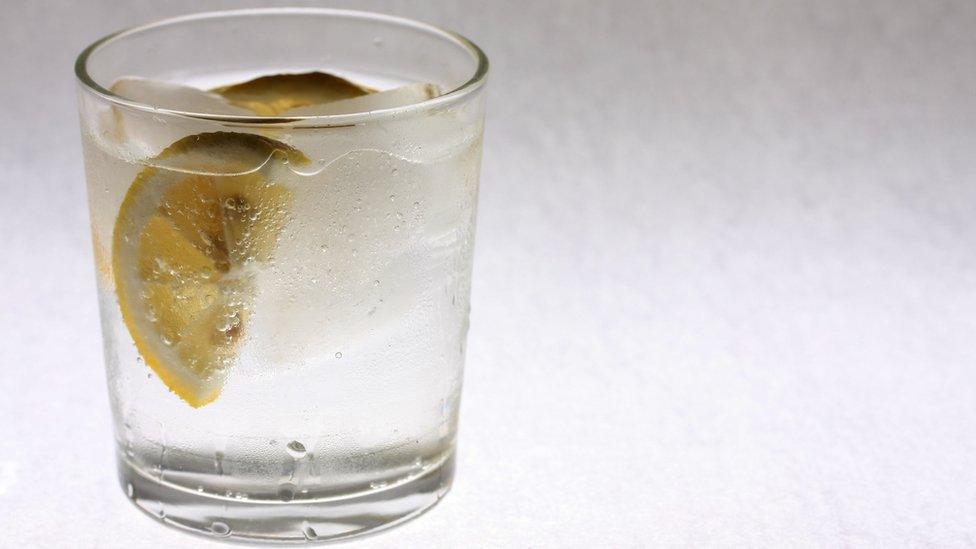
Started life as a medicine, ended up being the coolest drink in town
The British East India Company's fight against malaria led to a tipple much beloved by Britons to this day.
Quinine was found to prevent the disease,, external but was bitter to drink so adding water, sugar, lime and gin to the quinine made the elixir more palatable. Soldiers in India were already given a gin ration, so it all made sense.
These days a gin and tonic is the crispest, cleanest drink a Briton can have, as much a refreshment on a hot summer's night as a fashion statement, to be held while propping up a cocktail bar. Cheers, India!